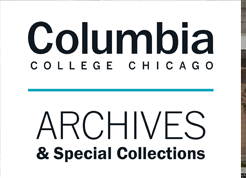
Document Type
Article
Publication Date
Spring 4-23-2015
Keywords
Civil rights, social justice, interfaith work, Methodist, Protestant, Chicago Housing Authority, Commission on Human Relations, Chicago, Illinois, Sherman United Methodist Church, Evanston, Illinois, Progressive Community Church, Bronzville, Democratic National Convention, Democratic National Convention, Chicago, Illinois, Church work, Segregation, Civil rights demonstrations, Civil rights movements
Disciplines
Cultural History | History | Political History | Political Science | Religion | Religious Thought, Theology and Philosophy of Religion | Social History | United States History
Abstract
Length: 84 minutes
Interview with Reverend B. Herbert Martin, Sr. by Matthew Kevin Robinson
Rev. Martin begins by describing his childhood in Mound Bayou, Mississippi, the oldest all-Black community in America, with his parents, grandparents, and nine siblings. He describes his strong religious upbringing and how he was called to ministry at the age of nine. He recounts being attacked and severely beaten by a group of “vigilante” white men for trying to register Black people to vote. He talks of his time at Philander Smith College, working for a wealthy retired counsel general, and the first churches he pastored for. He remembers his experiences trying to attending Payne Theological Seminary while working for the juvenile court in Dayton and how that led to his family moving to Chicago, eventually enrolling at Garrett Theological Seminary. He recalls the assassination of Martin Luther King Jr. and the chaos that ensued. He details his participation in the DNC protests, sheltering protesters in his church, and being charged for aiding and abetting fugitives as a result. He gives his perspective on the political scene in 1968, Black Power movement and religious activism, and the continuing struggle for equality and against racism in Chicago and America writ large.
Recommended Citation
Robinson, Matthew Kevin. "Interview with Dr. Rev. B. Herbert Martin Sr." (Spring 2015). Oral Histories, Department of Humanities, History & Social Sciences, College Archives & Special Collections, Columbia College Chicago. http://digitalcommons.colum.edu/chicago1968/6
Streaming Media
Creative Commons License

This work is licensed under a Creative Commons Attribution-NonCommercial-No Derivative Works 4.0 International License.
Included in
Cultural History Commons, Political History Commons, Political Science Commons, Religious Thought, Theology and Philosophy of Religion Commons, Social History Commons, United States History Commons


Biography and Comments
He was active during the 1960s in civil rights and social justice issues, in 1968, he was a student pastor at the Sherman United Methodist Church in Evanston, IL. Rev. Martin attended Garrett Evangelical Theological Seminary, graduating in 1971, was appointed interim chair of the Chicago Housing Authority by Mayor Washington, served as executive director of the Chicago Commission on Human Relations in the 1980s, and served as pastor of the Progressive Community Church, an independent Protestant church, in the Bronzeville neighborhood of Chicago until his retirement in 2019.
The interviewer conducted this oral history as part of his/her coursework for the Spring 2015 class, Oral History: The Art of the Interview. This project was completed in collaboration with the Council of Religious Leaders of Metropolitan Chicago and the College Archives & Special Collections department at Columbia College Chicago. Contact archives@colum.edu for more information.